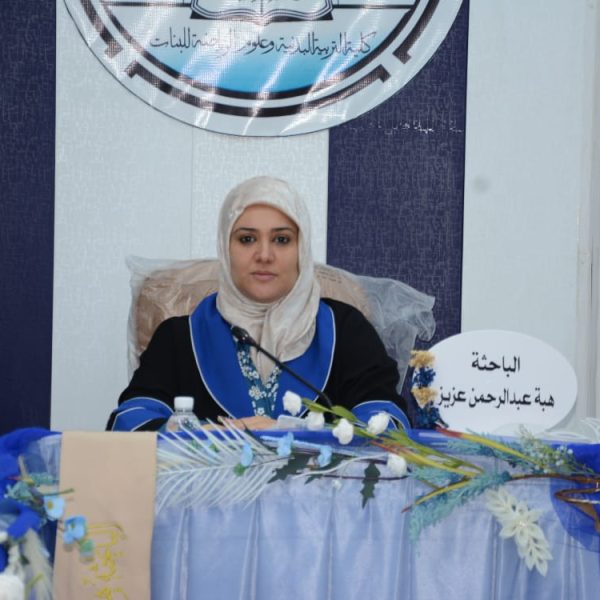The College of Physical Education and Sports Sciences for Women at the University of Baghdad witnessed the examination of the master’s thesis entitled (The Impact of the Light Magnetic Poles Strategy on Core Thinking Skills and the Performance of the Serving and Receiving Skills in Volleyball among Female Students) by the student (Hiba Abdulrahman Aziz).
The examining committee consisted of Prof. Dr. Luma Sameer Hammoudi, University of Baghdad—Chair; Prof. Dr. Suhail Jasim Jawad, University of Babel—External Member; Prof. Dr. Naeema Zaidan Khalaf—Member; and Prof. Dr. Najla Abbas Nassif—Supervisor.
The research aimed to design and manufacture a specialized “Light Magnetic Poles” device for teaching female students the serving and receiving skills in volleyball, prepare instructional units based on the Light Magnetic Poles strategy for volleyball lessons, build a scale for core thinking skills, and identify the impact of using — and not using — the Light Magnetic Poles strategy on these skills in volleyball.
The researcher concluded that applying the Light Magnetic Poles strategy in practical volleyball lessons for fourth-year preparatory school students is possible. This strategy helps improve core thinking skills in volleyball and gives an advantage over students who learn without it. It also enhances the performance of serving and receiving skills in volleyball.
The researcher recommended the following: Considering the importance of incorporating the teaching of core thinking skills in practical volleyball lessons, and focusing on practical applications of using the Light Magnetic Poles model to enable students to gain knowledge about correct performance and common errors during practice and application of educational exercises in physical education lessons and developing the abilities of physical education teachers in preparatory schools and increasing their knowledge of using the Light Magnetic Poles model according to the studied teaching strategy.
This examination supports one Sustainable Development Goal, Goal 4: Quality Education.
